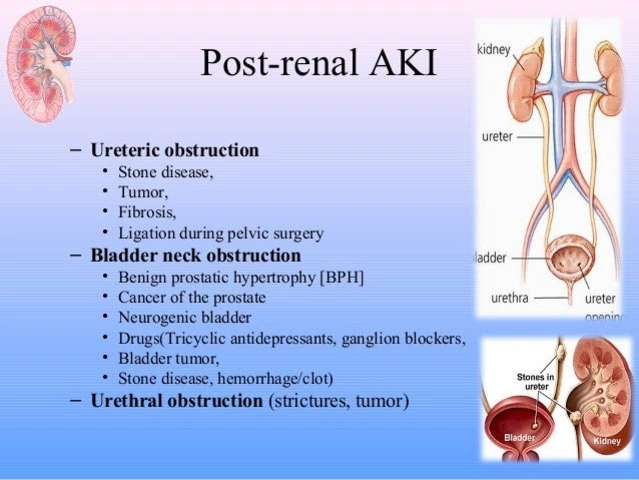Understanding Benign Prostatic Hyperplasia
Before diving into the role of diet in preventing and managing benign prostatic hyperplasia (BPH), it's essential to understand what this condition is. BPH is a non-cancerous enlargement of the prostate gland, which is a small gland situated below the bladder in men. This enlargement can lead to urinary symptoms such as frequent urination, difficulty starting and stopping urination, and a weakened urine stream. Although BPH is not life-threatening, it can significantly impact a man's quality of life.
The Connection Between Diet and BPH
There's growing evidence to suggest that diet plays a crucial role in preventing and managing BPH. A healthy diet can help maintain a balanced hormonal environment, reduce inflammation, and promote overall prostate health. On the other hand, a poor diet can contribute to the development and progression of BPH. It is crucial to understand the connection between diet and BPH to make informed choices about the foods we consume.
Reducing Inflammation with Anti-Inflammatory Foods
One of the primary factors contributing to BPH is inflammation. Consuming anti-inflammatory foods can help reduce inflammation in the body, thus preventing and alleviating BPH symptoms. Foods rich in omega-3 fatty acids, such as fatty fish, flaxseeds, and walnuts, are excellent choices for combating inflammation. Other anti-inflammatory foods include fruits and vegetables rich in antioxidants, like berries, leafy greens, and tomatoes.
Focusing on Plant-Based Protein Sources
Studies have shown that men who consume a diet high in animal protein may be at a higher risk of developing BPH. To reduce this risk, it's essential to focus on plant-based protein sources such as beans, lentils, chickpeas, and tofu. These protein sources not only provide essential nutrients but also help maintain a healthy weight, which is crucial in preventing BPH.
Limiting Processed and Refined Foods
Processed and refined foods often contain high amounts of sugar, unhealthy fats, and additives that can contribute to inflammation and hormonal imbalances. Limiting the consumption of processed foods such as fast food, sugary snacks, and white bread can help keep the prostate gland healthy and prevent the development or worsening of BPH.
Key Nutrients for Prostate Health
Several nutrients play a crucial role in maintaining prostate health and preventing BPH. Ensuring that our diet is rich in these nutrients can help promote overall prostate health and reduce the risk of developing BPH.
Zinc
Zinc is an essential mineral that plays a critical role in prostate health. It helps regulate hormone levels, boosts the immune system, and has anti-inflammatory properties. Foods rich in zinc include oysters, pumpkin seeds, legumes, and whole grains.
Selenium
Selenium is a powerful antioxidant that helps protect the prostate from oxidative stress and inflammation. It can be found in foods such as Brazil nuts, tuna, and sunflower seeds. Maintaining adequate selenium levels can contribute to a healthier prostate.
Vitamin D
Vitamin D is essential for maintaining overall health and has been found to play a role in preventing BPH. It helps regulate cell growth and has anti-inflammatory properties. Sources of vitamin D include fatty fish, fortified dairy products, and sunlight exposure.
Creating a BPH-Friendly Diet Plan
Now that we understand the role of diet in preventing and managing BPH, it's essential to create a BPH-friendly diet plan. This plan should include a variety of anti-inflammatory foods, plant-based protein sources, and foods rich in key nutrients for prostate health. It's also crucial to limit processed and refined foods that can contribute to inflammation and hormonal imbalances.
By adopting a BPH-friendly diet, we can take control of our prostate health and reduce the risk of developing BPH. This proactive approach will not only help prevent and manage BPH but also promote overall health and well-being.


Susan Karabin
May 7, 2023 AT 03:52Jen Taylor
May 7, 2023 AT 05:32Tanuja Santhanakrishnan
May 8, 2023 AT 04:45luna dream
May 8, 2023 AT 22:31Shilah Lala
May 9, 2023 AT 07:46Linda Patterson
May 9, 2023 AT 12:09Christy Tomerlin
May 10, 2023 AT 08:03Billy Gambino
May 10, 2023 AT 16:25Cecil Mays
May 10, 2023 AT 20:20Sarah Schmidt
May 10, 2023 AT 20:50Karen Werling
May 11, 2023 AT 02:35Stuart Palley
May 11, 2023 AT 07:52STEVEN SHELLEY
May 11, 2023 AT 14:46Emil Tompkins
May 11, 2023 AT 18:35Kevin Stone
May 12, 2023 AT 01:06Glenda Walsh
May 12, 2023 AT 01:17Lorena Cabal Lopez
May 12, 2023 AT 03:49Natalie Eippert
May 12, 2023 AT 20:18Raj Modi
May 13, 2023 AT 13:25